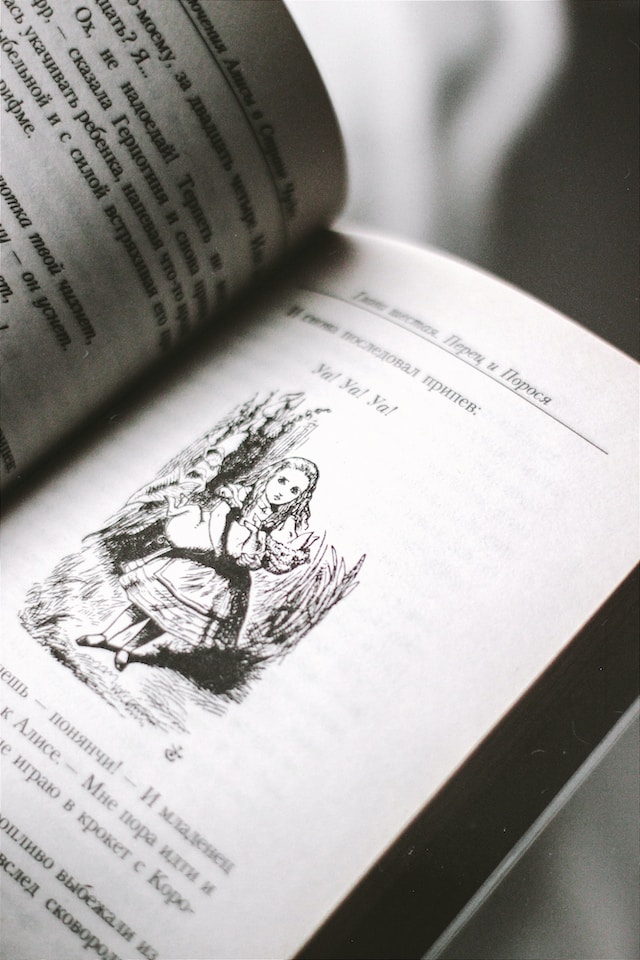Introduction
As we celebrate Women’s History Month, it is important to remember the remarkable contributions of female authors in American Literature. From Mary Shelley’s groundbreaking science fiction novel Frankenstein to Toni Morrison’s powerful exploration of race and identity in Beloved, these women have left an indelible mark on our literary landscape. Join us as we explore their unique perspectives and celebrate the diversity of female voices that enriches our understanding of the world around us.
Celebrating the Diversity of Female Voices in American Literature
American literature is a vast and diverse landscape, filled with countless voices telling stories that reflect the human experience in all its complexity. However, for many years, female voices were underrepresented in this literary world. Women writers faced systemic discrimination and marginalization that kept their works from being widely recognized and appreciated.
Thankfully, times have changed. Today, we celebrate the diversity of female voices in American literature as an essential part of our cultural heritage. From classic authors like Mary Shelley to contemporary luminaries like Toni Morrison and Chimamanda Ngozi Adichie, women writers have enriched our understanding of ourselves and each other through their compelling storytelling.
Female writers bring unique perspectives to the literary conversation by exploring themes such as identity, family dynamics, social inequality, race relations, and much more. Their narratives often delve into issues that have historically been neglected or ignored in mainstream literature but are crucial for understanding our society’s complexities today.
As readers engage with these diverse female voices across different genres – from poetry to memoirs- they gain insight into experiences beyond their own lives’ boundaries while fostering empathy-building relationships between individuals who may not relate at first glance.
The celebration of these powerful female voices helps break down outdated notions about gender roles in writing while inspiring younger generations of aspiring women writers everywhere to follow their passions boldly.
Women’s History Month
March is Women’s History Month, a time to celebrate the incredible achievements and contributions of women throughout history. It’s a month-long celebration dedicated to recognizing the accomplishments of women in all fields, from science and politics to literature and art.
Women’s History Month has been observed annually since 1987, when Congress designated March as the month for celebrating women’s history. The idea behind this observance is to ensure that the stories of women who have made significant contributions to their communities, countries, or even globally are recognized and celebrated.
This special occasion provides an opportunity for us to learn about and honor remarkable figures such as Susan B. Anthony, Maya Angelou, Ruth Bader Ginsburg, Malala Yousafzai just to name a few – all of whom fought tirelessly for equality in their respective fields.
In addition to honoring these trailblazers during Women’s History Month events like conferences, workshops, exhibits and online campaigns take place throughout the country every year. These events aim at raising awareness about issues affecting women today while also inspiring future generations of girls who aspire towards leadership roles.
Celebrating Women’s History Month reminds us how far we’ve come on gender equality but also highlights areas where there’s still work left undone. Regardless it serves as an essential moment each year that recognizes womanhood in its many forms – shaping our world into one more inclusive space for everyone!
Mary Shelley
Mary Shelley is a name synonymous with the classic novel, Frankenstein. However, her contributions to literature go beyond this famous work. Born in 1797 in London, Mary Wollstonecraft Godwin Shelley was the daughter of two prominent intellectuals and writers. Her mother died when she was young, and she grew up reading extensively.
In 1816, at just 18 years old, Mary Shelley began writing what would become Frankenstein. The novel tells the story of Victor Frankenstein’s creation of a monster and its disastrous consequences. It has been widely recognized as one of the earliest examples of science fiction.
Shelley’s life was marred by tragedy – she suffered several miscarriages and lost her husband at a young age – but her legacy lives on through her written works that continue to inspire readers today.
Beyond Frankenstein, Shelley wrote several other novels including The Last Man and Lodore. She also edited and contributed to numerous journals during her lifetime. Her feminist perspective on society can be seen throughout many of her works which explore themes such as identity, agency, and power dynamics.
Mary Shelley’s contribution to American literature goes far beyond just one book; rather it encompasses an entire genre that continues to captivate audiences worldwide even today!
Toni Morrison
Toni Morrison is a name that needs no introduction in the world of literature. Born Chloe Ardelia Wofford, the Pulitzer Prize-winning author’s works have left an indelible mark on American literature. Her novels explore themes such as race, gender, identity, and culture with lyrical prose that captivates readers.
Her debut novel “The Bluest Eye,” published in 1970, explored issues of colorism and self-loathing within African American communities. This was followed by other notable works such as “Sula,” which examined female friendship against societal expectations; “Song of Solomon,” which delved into cultural displacement; and “Beloved,” based on the true story of an escaped slave woman who kills her child to prevent them from returning to slavery.
Morrison’s writing style is known for its vivid imagery and metaphorical language that creates a profound emotional impact on readers. She also challenges literary conventions by experimenting with narrative structure, point-of-view, and time shifts.
Beyond her literary contributions, Morrison was a trailblazer for Black women writers and intellectuals. In 1993 she became the first African American woman to win the Nobel Prize in Literature. She used her platform to advocate for social justice causes such as racial equality and access to education.
Toni Morrison’s legacy continues today through her work’s impact on both academia and popular culture alike. From Oprah Winfrey featuring her books in her book club to Beyonce quoting from one of Morrison’s speeches during Coachella performance – this proves how much she has influenced modern-day society with powerful storytelling techniques while speaking about real-world problems affecting us all across different generations!
Conclusion
The diversity of female voices in American literature is something worth celebrating not just during Women’s History Month but all year round. From Mary Shelley to Toni Morrison and countless others, women have made significant contributions to the literary landscape of America with their unique perspectives and powerful stories.
Their works have inspired generations of readers and opened doors for future female writers to continue sharing their own diverse experiences. It’s vital that we recognize the value of these voices as they pave the way towards a more inclusive society.
As we move forward, let’s continue to celebrate and amplify the voices of all women in literature, recognizing that there are still many untold stories waiting to be shared. Only by embracing this diversity can we truly appreciate the richness of human experience through storytelling.









